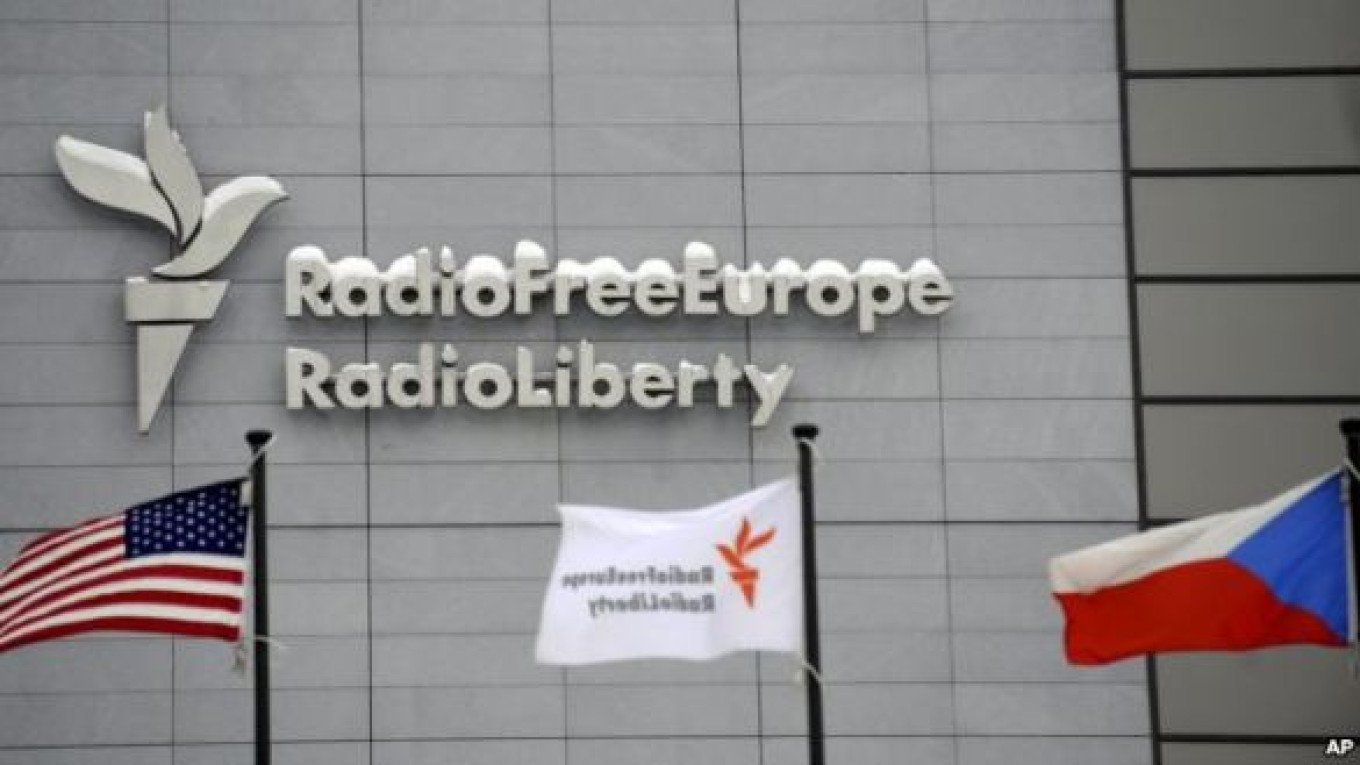Radio Liberty is hiring dozens of staff to rebuild its operations? in a modern multimedia format, a senior executive of the station's parent company Radio Free Europe/Radio Liberty said Friday.
After moving to a new bureau in Moscow, Radio Liberty's staff is to number 40 to 50 people in both Moscow and Prague, Julia Ragona, Radio Free Europe's vice president of content, distribution and marketing, told The Moscow Times.
That number is about half of the "close to 90 people" that the station employed in both cities? until September, when more than 40 journalists were laid off in Moscow, reducing the local bureau to a staff of just 10.
Ragona said that the layoffs were necessary to build a "single team" with different skills that would focus on turning Radio Liberty into a digital multimedia outlet under its new director, Masha Gessen. Hitherto the station consisted of two separate teams for radio and online content, she said.
She reiterated that the station's budget would not be cut. Radio Free Europe, which is funded by the U.S. Congress and currently has an annual budget of $92 million, does not disclose individual financial details, but Ragona said that Radio Liberty remains the largest of its divisions.
Critics have accused the U.S.-funded broadcaster, founded in 1953 as a Cold War tool to influence opinion in the Soviet bloc, of abandoning many of its listeners. The staff cuts went hand in hand with the announcement that Radio Liberty will end its AM broadcasting next month.
Ragona admitted that a small and "dedicated" audience did use AM, but added that, especially in Moscow, the signal was so bad that it was "very painful to listen to."
Writing in The Moscow Times earlier this week, Radio Free Europe's president Steve Korn said that the decision to abandon AM broadcasts was based on a federal law that forbids foreign control of broadcast licenses — prompting accusations that the broadcaster was caving in to Kremlin pressure.
Ragona pointed out that the law was in line with legislation in Western countries, including the United States, where foreigners are prohibited from owning terrestrial broadcasting licenses, which prompted Australian media tycoon Rupert Murdoch to obtain citizenship in 1985.
Russian broadcasters, first and foremost the Kremlin-funded RT Television channel, are limited to cable and satellite, she said.
Radio Liberty also explored taking on a Russian partner to circumvent the law, but a planned deal with Alexander Lebedev, who owns Novaya Gazeta and a number of Moscow radio stations, fell through because his licenses did not allow the content necessary for Radio Liberty, Ragona said.
Related articles:
A Message from The Moscow Times:
Dear readers,
We are facing unprecedented challenges. Russia's Prosecutor General's Office has designated The Moscow Times as an "undesirable" organization, criminalizing our work and putting our staff at risk of prosecution. This follows our earlier unjust labeling as a "foreign agent."
These actions are direct attempts to silence independent journalism in Russia. The authorities claim our work "discredits the decisions of the Russian leadership." We see things differently: we strive to provide accurate, unbiased reporting on Russia.
We, the journalists of The Moscow Times, refuse to be silenced. But to continue our work, we need your help.
Your support, no matter how small, makes a world of difference. If you can, please support us monthly starting from just $2. It's quick to set up, and every contribution makes a significant impact.
By supporting The Moscow Times, you're defending open, independent journalism in the face of repression. Thank you for standing with us.
Remind me later.


